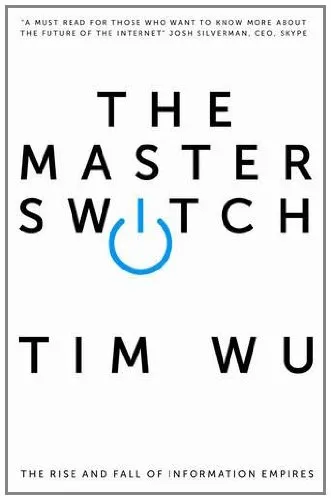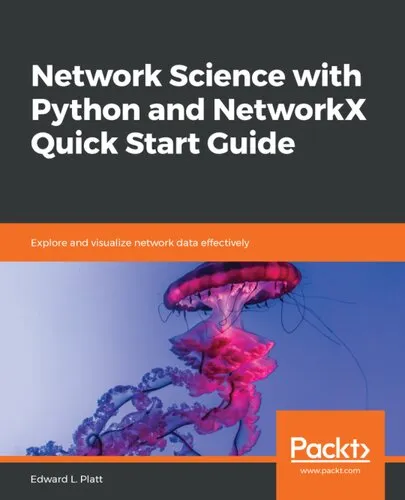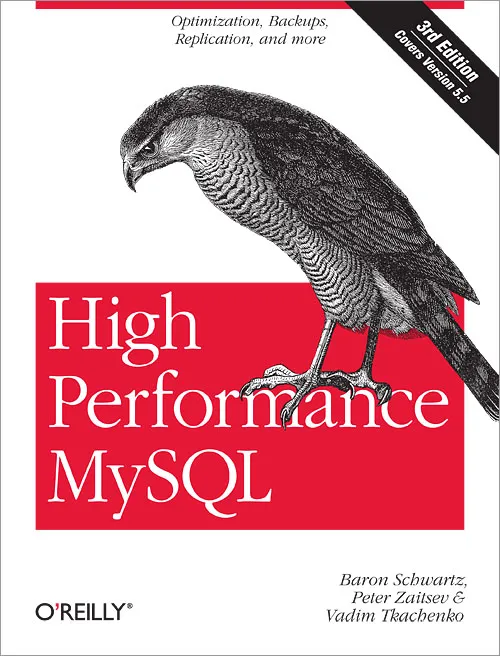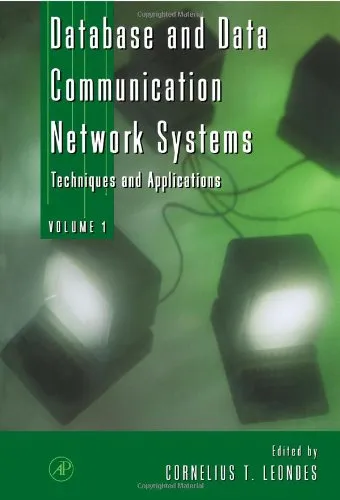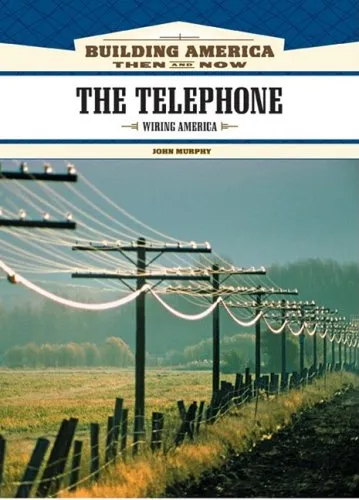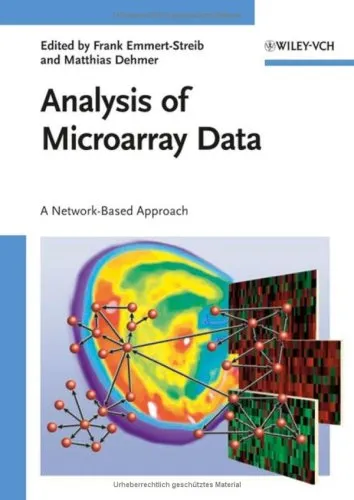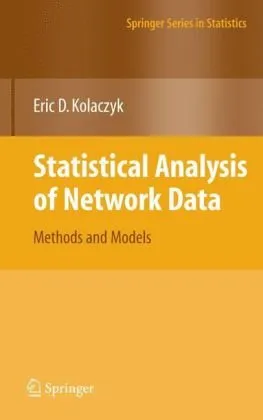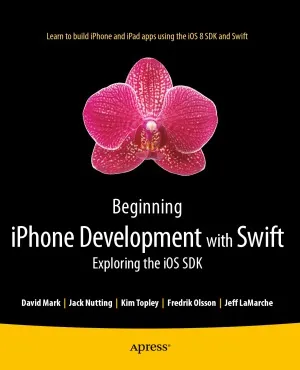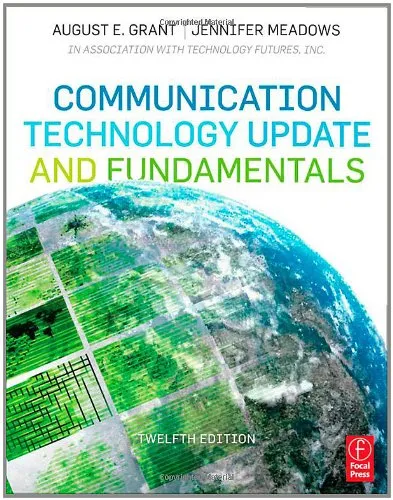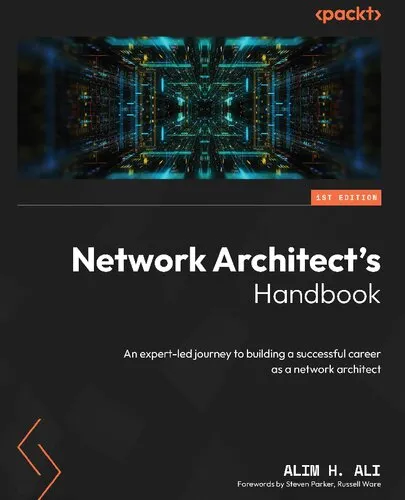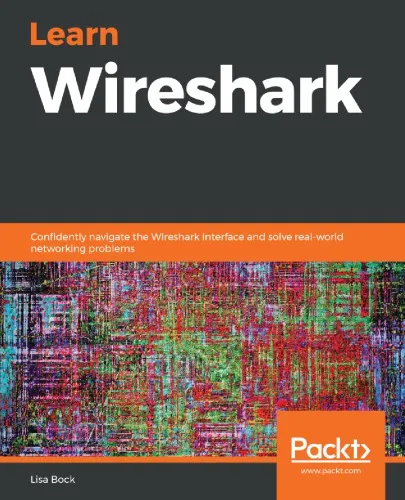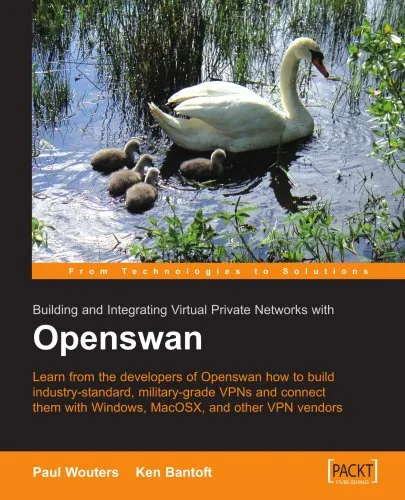Master Switch: The Rise and Fall of Information Empires
4.4
بر اساس نظر کاربران

شما میتونید سوالاتتون در باره کتاب رو از هوش مصنوعیش بعد از ورود بپرسید
هر دانلود یا پرسش از هوش مصنوعی 2 امتیاز لازم دارد، برای بدست آوردن امتیاز رایگان، به صفحه ی راهنمای امتیازات سر بزنید و یک سری کار ارزشمند انجام بدینRelated Refrences:
معرفی کتاب "Master Switch: The Rise and Fall of Information Empires"
کتاب Master Switch: The Rise and Fall of Information Empires نوشته تیم وو، اثری تحلیلی و بینشی است که به بررسی چرخههای صعود و سقوط امپراتوریهای اطلاعاتی در تاریخ فناوری و ارتباطات میپردازد. این کتاب با نگاهی جامع و پژوهشی، نقش سیاست، انحصار و نوآوری را در شکلدهی دنیای اطلاعات و رسانهها واکاوی میکند. تیم وو، که در زمینه سیاستهای ارتباطی مشغول به کار و نویسندهای برجسته است، با ارائه روایتهای تاریخی و تحلیلهای دقیق، نشان میدهد که چگونه فناوریهای جدید ابتدا وعده آزادی و دموکراسی میدهند، اما با گذشت زمان تحت کنترل انحصاری قرار میگیرند.
خلاصهای جزئی از کتاب
تیم وو در Master Switch چرخهای را توصیف میکند که او آن را "چرخه اطلاعات" مینامد. این چرخه شامل مرحلهای است که یک فناوری یا شرکت جدید، به علت نوآوری و حذف محدودیتها، به سرعت رشد میکند و فرصتهای بیشماری ایجاد میکند. اما در ادامه معمولاً این رشد به شکلی منتهی به تمرکز قدرت و انحصار ختم میشود. تیم وو مثالهایی ملموس و تاریخی از این چرخه ارائه میکند و داستانهایی درباره شرکتهایی مانند AT&T، RCA، و حتی شرکتهای مدرنتری مانند Apple و Google بیان میکند. او همچنین تأثیر این چرخهها را بر اینترنت به عنوان یکی از آخرین میادین اطلاعاتی بررسی میکند و خطر تحولات مشابه را به خوانندگان گوشزد میکند.
نکات کلیدی
- تاریخ نشان داده است که هر فناوری اطلاعاتی در ابتدا نوید آزادی و فراگیری میدهد، اما معمولاً در نهایت به انحصارگرایی ختم میشود.
- شرکتهای بزرگ اطلاعاتی مانند AT&T و RCA چگونه قدرت بازار را به دست آوردند و با نفوذهای دولتی، رقابت را محدود کردند.
- نقش مهم سیاستگذاریهای دولتی در مدیریت تمرکز قدرت و انحصار در عرصه فناوری و ارتباطات رسانهای.
- خطری که اینترنت و دنیای دیجیتال نیز میتوانند با روندهای مشابه روبرو شوند.
جملات مشهور از کتاب
“The rise of any empire eventually brings with it the temptation to close off competition, to protect what has been won.”
“Each of the great industries spawned in the information economy has had its period of time in which it truly WAS open, free, and entrepreneurial; and each has had its period of domination by a single great industrial trust.”
چرا این کتاب مهم است؟
کتاب Master Switch برای هر کسی که علاقهمند به درک عمیقتر از آینده دیجیتال جهان است، اثری ضروری به شمار میرود. این کتاب نه تنها به مخاطب کمک میکند تا گذشته را درک کند، بلکه ابزارها و بینشهای لازم را برای پیشبینی آینده ارائه میدهد. تیم وو با بهرهگیری از پژوهشهای تاریخی و دیدگاههای سیاسی، تأکید میکند که انتخابات و تصمیمگیریهای امروز، تاثیر عمیقی بر ساختار آینده دارند. اگرچه تمرکز کتاب بر روی ارتباطات و رسانه است، اما پیامهای آن برای تمامی حوزههای فناوری مرتبط و کاربردی است.
Introduction to 'The Master Switch: The Rise and Fall of Information Empires'
In today's world, where access to information defines the contours of power, the book 'The Master Switch: The Rise and Fall of Information Empires' by Tim Wu explores the historical cycles of dominance and disruption that characterize the communications industries. This seminal work examines how powerful companies have risen to shape—and sometimes stifle—innovation, freedom, and competition in the markets of information technologies. Wu’s analysis dives deep into the dynamics of monopolies, technological creativity, and government intervention, offering profound insights into what it means to regulate, foster, and protect the free exchange of ideas in the digital age.
Tim Wu, a Columbia Law School professor and renowned scholar of technology policy, provides a compelling framework for understanding why history seems to repeat itself in the telecommunications and media industries. This book offers both a cautionary tale and a glimmer of hope for how societies can use these patterns to better navigate the future of the Internet and our broader communication systems. Through detailed histories and forward-thinking analysis, Wu draws parallels between past monopolies and today’s tech giants while addressing the potential outcomes of unchecked monopolistic control. Below, you’ll find an engaging breakdown of the book's main ideas and its significance.
Detailed Summary of the Book
The central thesis of The Master Switch is that the rise and fall of powerful information empires follow a predictable cycle Wu calls "The Cycle." This cycle begins with the introduction of a transformative technology—such as the telephone, radio, or Internet—sparking a period of creative anarchy and open competition. During this phase, innovation flourishes as new players enter the industry and consumers benefit from a wealth of choices.
However, this productive openness often gives way to a state of consolidation. Over time, a small number of dominant players emerge, gaining control of the industry. These companies, such as AT&T in telephony or Hollywood’s major studios in the film industry, often erect barriers to prevent competition, acting as gatekeepers of innovation and content. Wu illustrates how monopolistic entities suppress alternatives that challenge the status quo, gradually inhibiting further technological progress.
Wu also explores the role governments can play in these cycles. While regulation can curb the excesses of monopolies, partnerships between corporations and governments—for purposes like wartime communication strategies—can also entrench monopolistic behavior. The book applies these historical precedents to modern-day concerns around technology giants like Google, Apple, and Facebook, warning against repeating the mistakes of the past.
In conclusion, The Master Switch posits that understanding the cyclical nature of information empires allows stakeholders—whether policymakers, entrepreneurs, or consumers—to break the cycle of consolidation and preserve the democratic potential of communication technologies.
Key Takeaways
- The "Cycle" of information industries often progresses through stages: invention, open competition, consolidation, and stagnation or monopoly.
- Monopolies often arise due to companies' strategic control over new technologies, content, and distribution platforms.
- Government intervention can either curb monopolistic power or exacerbate it through partnerships with dominant companies.
- The survival of innovation and competition requires constant vigilance and regulatory frameworks that prioritize openness and fairness.
- By understanding historical patterns, society can better prepare for future disruptions in information technology and media industries.
Famous Quotes from the Book
"History shows a typical progression of information technologies—from somebody's hobby to somebody's industry, from exciting and 'open' to boring and 'closed'—until the next big thing forces change."
"The cycle teaches us that freedom and openness are not the natural state of a communications market. Without objection or protest, they erode."
"There is no essential difference between a telephone call, a radio broadcast, and an Internet transmission. They can all be used to transmit free speech—or block it."
Why This Book Matters
This book is essential reading for anyone interested in the intersection of technology, innovation, and power. Wu’s work is particularly meaningful in today’s digital economy, where a few tech giants dominate global markets for search engines, social networks, and e-commerce. It provides readers with a framework for understanding not only how these companies gained their influence but also what risks such dominance poses to innovation, economic fairness, and democratic discourse.
The Master Switch is also crucial for policymakers tasked with regulating rapidly developing technologies while avoiding stifling creativity. By offering an in-depth analysis of historical monopolies, Wu equips readers with the tools to better navigate the challenges posed by modern-day conglomerates. Whether you are an entrepreneur, a consumer, or simply a citizen of the digital age, this book serves as a guide to understanding the forces shaping your access to information—and the steps necessary to preserve a truly open system.
دانلود رایگان مستقیم
شما میتونید سوالاتتون در باره کتاب رو از هوش مصنوعیش بعد از ورود بپرسید
دسترسی به کتابها از طریق پلتفرمهای قانونی و کتابخانههای عمومی نه تنها از حقوق نویسندگان و ناشران حمایت میکند، بلکه به پایداری فرهنگ کتابخوانی نیز کمک میرساند. پیش از دانلود، لحظهای به بررسی این گزینهها فکر کنید.
این کتاب رو در پلتفرم های دیگه ببینید
WorldCat به شما کمک میکنه تا کتاب ها رو در کتابخانه های سراسر دنیا پیدا کنید
امتیازها، نظرات تخصصی و صحبت ها درباره کتاب را در Goodreads ببینید
کتابهای کمیاب یا دست دوم را در AbeBooks پیدا کنید و بخرید
